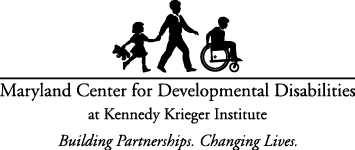Faith, Disability, and Mental Health: Faith Leaders Forum
June 8, 2020

|
The Maryland Center for Developmental Disabilities (MCDD) at Kennedy Krieger Institute hosted its first Faith Leader Forum virtually on May 7, 2020. Over thirty faith-based community leaders from across the state of Maryland engaged in a live, interactive, virtual learning collaborative to increase their awareness of the challenges faced by individuals with intellectual and developmental disabilities (I/DD) and mental illness, and to understand how they can help address those challenges and the stigma associated with mental illness and disability.
Participants learned how to create a more inclusive environment for individuals with disabilities and their families in their faith communities, and how to identify those at risk and facilitate their referral to mental health services. Mirian Ofonedu, PhD, LCSW-C, MCDD's Director of Training, led the attendees through a presentation that described what is known about faith, spirituality, and health among people with I/DD and other disabilities.
The exclusion, shame, and stigma experienced by people with I/DD and their families, and ways to create opportunities that allow for meaningful participation and acceptance of diversity in how each of us experience God was discussed. Participants learned about the spiritual triangle (God, self, and others). This model depicts the interconnectedness of God, self, and others and emphasizes that humans are not just social and cultural beings, but also spiritual beings. The model stresses how these parts of our lives connect and influence our health and life meaning. The session also discussed the key roles faith leaders play as socio-cultural mediators and social influencers in modeling and shaping the attitudes of their faith community members, and their ability to foster inclusive practice and counter discrimination and stigma associated with mental illness and disability. Participants learned tips that will help them as they work to develop inclusive practices in their respective faith communities that go beyond addressing the architectural barriers, and change attitudes at all levels.
The presentation was followed by a panel discussion that included parents of children with disabilities and mental health issues, individuals with disabilities (self-advocates), and faith community leaders, who shared their experiences engaging with their faith communities and their efforts to create a more inclusive community. The MCDD plans to continue its work in this arena by inviting faith leaders to participate in its Faith Community Learning Collaborative that creates opportunity for collaborative exchange, disability etiquette training, and a shared reflection that strengthens knowledge and skills related to inclusive practice. Ten faith leaders from across the state of Maryland have accepted this invitation. For more information, contact Dr. Ofonedu.







